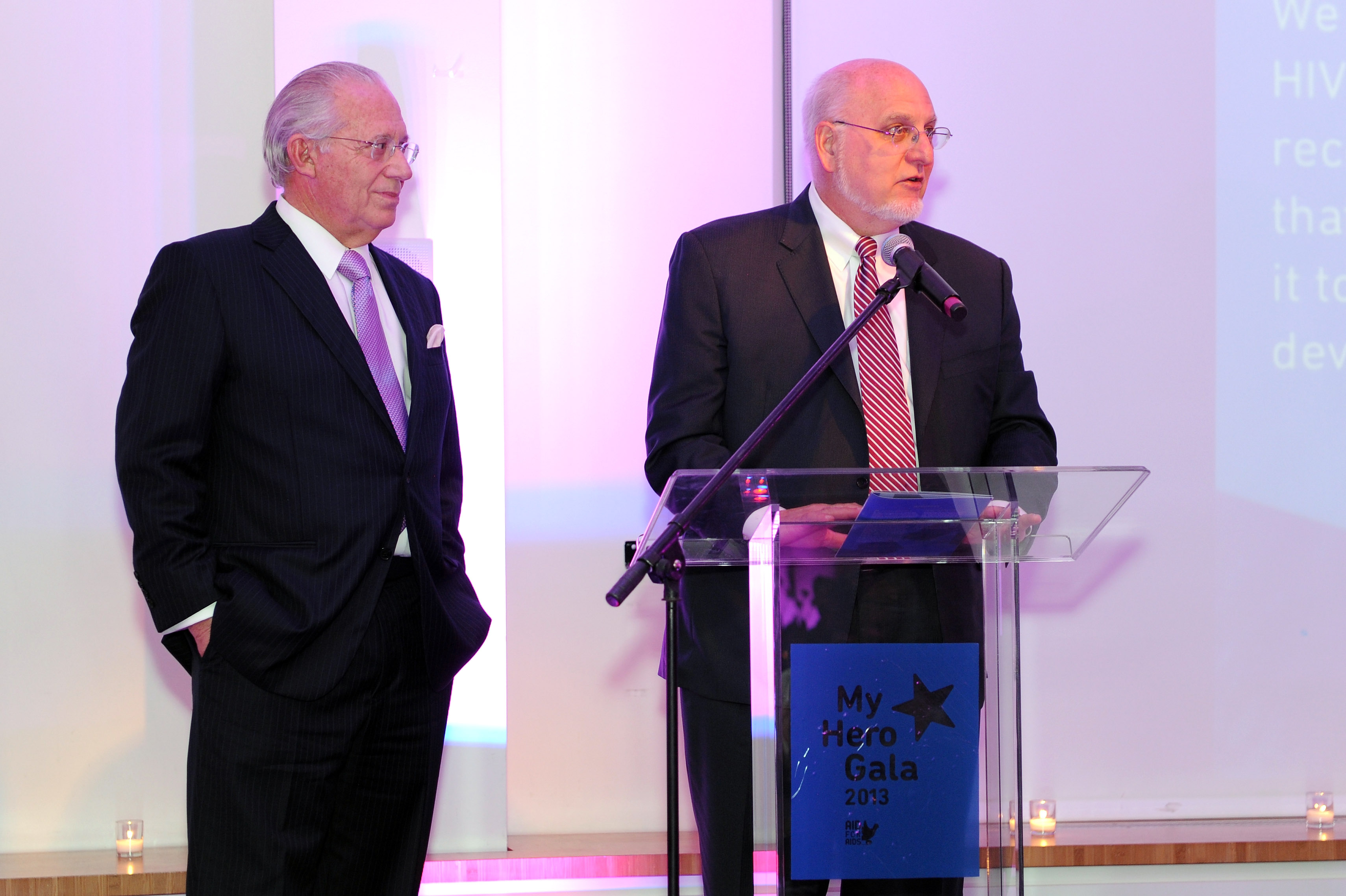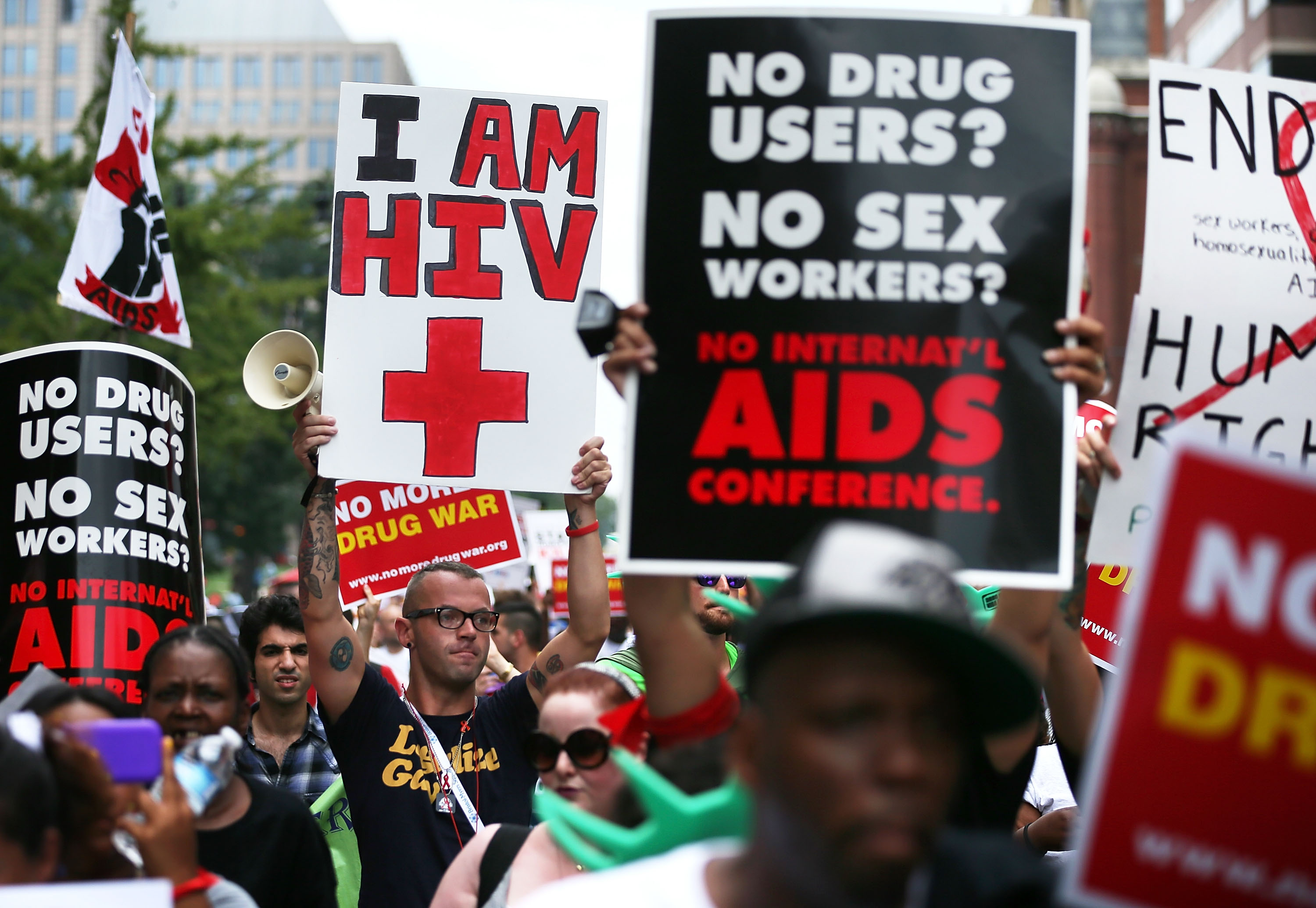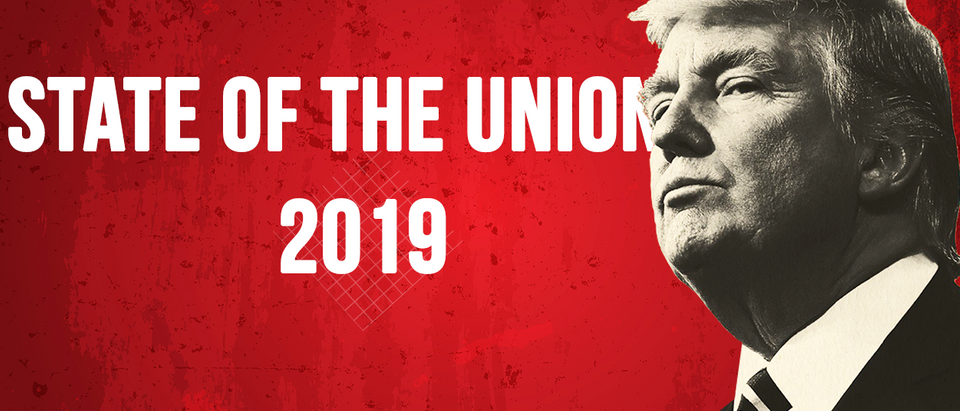President Donald Trump shared his administration’s plan “to defeat AIDS in America and beyond” during his State of the Union speech Tuesday.
“No force in history has done more to advance the human condition than American freedom. In recent years we have made remarkable progress in the fight against HIV and AIDS. Scientific breakthroughs have brought a once-distant dream within reach,” Trump said. “My budget will ask Democrats and Republicans to make the needed commitment to eliminate the HIV epidemic in the United States within 10 years. We have made incredible strides, incredible.”
Because of modern medicine, an HIV/AIDS diagnosis is no longer a death sentence, but the epidemic still affects roughly 40,000 new patients each year, according to Centers for Disease Control and Prevention (CDC) data.
Trump’s announcement might seem out of the blue, but it is not that surprising given the CDC’s relatively new director, Robert Redfield, had an extensive career researching HIV/AIDS, reported Politico. (RELATED: Trump To Announce Plan To Fight HIV During State Of The Union)
“Ending the AIDS epidemic in America? It’s possible. I think it could be done in the next three to seven years, if we put our mind to it,” Redfield said at a CDC staff meeting on his second day at the agency in 2018, reported STAT News.

(L-R) William Haseltine and honoree Dr. Robert Redfield speak during the Aid for AIDS “My Hero Gala” 2013 at Three Sixty on November 5, 2013 in New York City. (Photo by Craig Barritt/Getty Images for Aid for Aids)
Presidents often use State of the Union addresses to push for public health goals. Then-President Barack Obama announced an initiative to “cure cancer” in his 2016 State of the Union address, reported Time.
In the public health arena, Trump’s administration focused on issues like the opioid crisis and rising prescription drug costs. Trump said the U.S. “will prevail” over the national opioid epidemic during his first State of the Union address in 2017.

HIV+ patient Aaron Laxton (Center R) of St. Louis, Missouri, and other activists participate in a march from the Washington Convention Center to the White House July 24, 2012 in Washington, DC. (Photo by Alex Wong/Getty Images)
Gay or bisexual men make up about two-thirds of new HIV infections, according to Politico. Trump’s announcement about the HIV strategy comes after Vice President Mike Pence’s wife was criticized for teaching at a private Christian school in Virginia that “reserves the right to refuse applicants or expel students who engage in homosexual or transgendered behavior.” (RELATED: Here Are The Red House Seats Democrats Are Already Working To Turn Blue In 2020)
The scientific community quickly reacted to Trump’s announcement. Benjamin Corb, director of public affairs for the American Society for Biochemistry and Molecular Biology, issued the following statement Tuesday evening:
In tonight’s State of the Union Address, President Donald Trump announced an ambitious goal to stop the spread of HIV/AIDS by the year 2030. We applaud the President for such an ambitious plan, and look forward to seeing his detailed plans to make this a reality. The nation’s biomedical research community – much of which is supported by federal investments at the National Institute’s for Health – is positioned to help make this goal a reality.
What remains to be seen, however, is if this is a plan and commitment to make a difference to a community of patients in need, or just another hollow promise from an administration that has not been a friend to science.
Trump faced criticism for looking into cuts to the President’s Emergency Plan for AIDS Relief (PEPFAR), but he extended the program in December 2018.
Trump delivered his State of the Union speech weeks after it was originally scheduled after going back and forth with House Speaker Nancy Pelosi during the partial government shutdown.
Follow Evie on Twitter @eviefordham.
Send tips to evie@dailycallernewsfoundation.org.
All content created by the Daily Caller News Foundation, an independent and nonpartisan newswire service, is available without charge to any legitimate news publisher that can provide a large audience. All republished articles must include our logo, our reporter’s byline and their DCNF affiliation. For any questions about our guidelines or partnering with us, please contact licensing@dailycallernewsfoundation.org.


